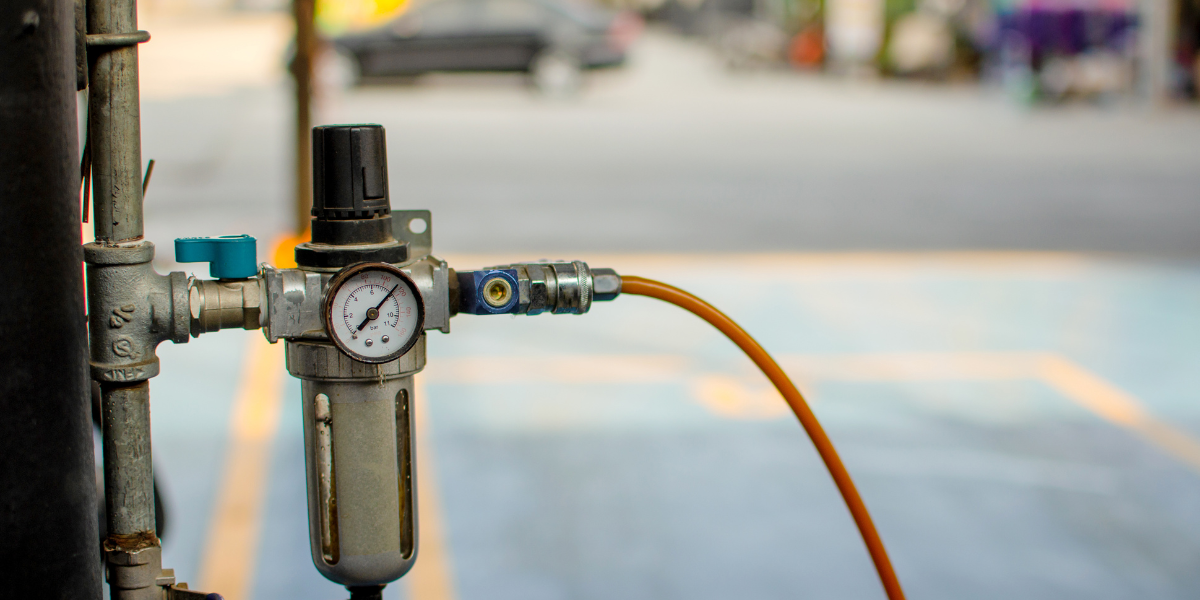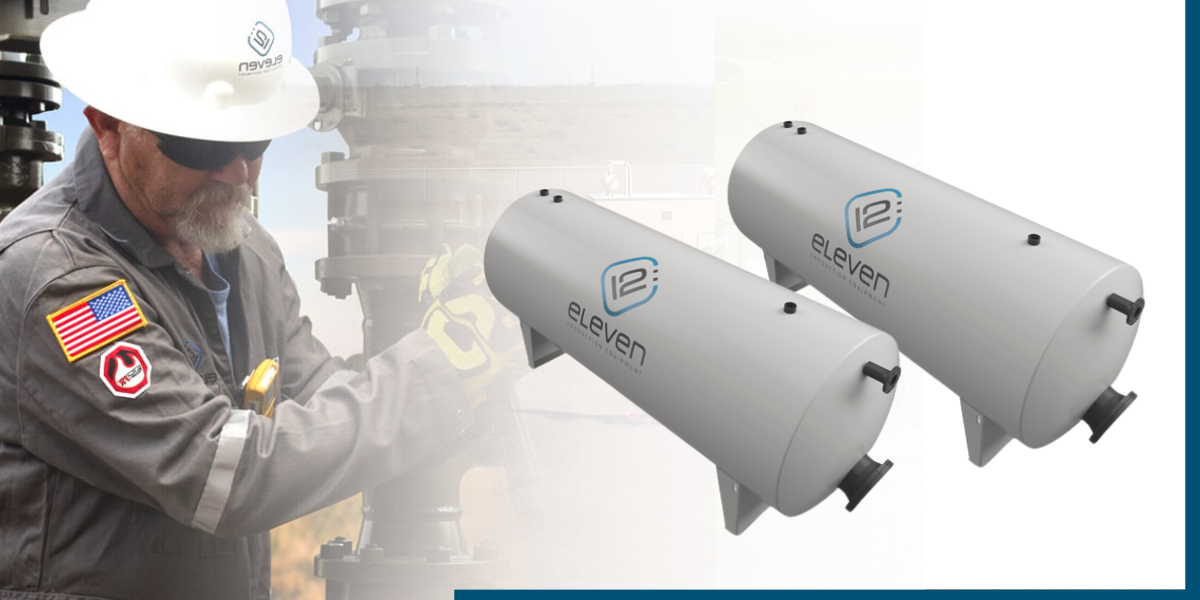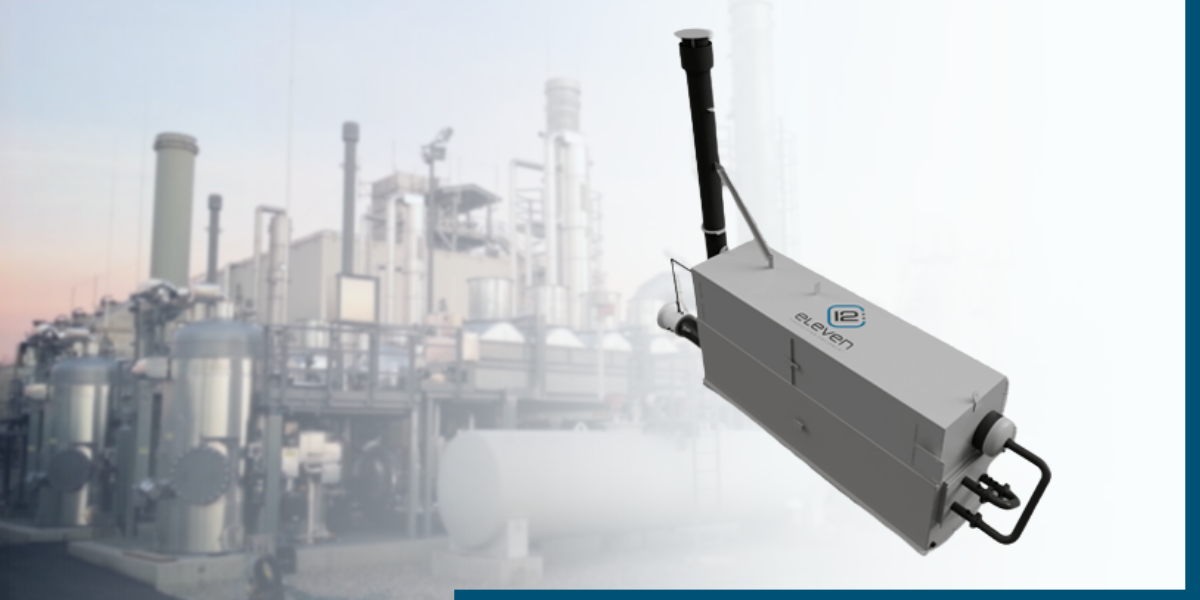Free Water Knockout (FWKO): What You Need To Know
Free water knockouts (FWKO) are an essential component in the oil and gas industry, designed to remove any free water present in the production...

When it comes to understanding the complex and intricate operations within the oil and gas industry, an essential component that frequently goes unnoticed is instrument air.
This blog post aims to shed light on what instrument air is, its purpose in a plant, what it consists of, how it differs from plant air, and its necessity for being clean. We will also delve into the concept of air compressor packages, a crucial element in the production and management of instrument air.
Instrument air is a type of compressed air used to operate process plant instrumentation and control devices. It's an essential component of any process-related industry, including oil and gas operations. It's used to power a variety of pneumatic devices, such as control valves, actuators, and tools. These devices aid in the execution of various control and automation tasks within the plant, contributing significantly to operational efficiency.
Instrument air serves a myriad of purposes in a plant. Its primary use is to actuate control valves and pneumatic instruments. Control valves regulate the flow, pressure, and level of process fluids, whereas pneumatic instruments help monitor and control these processes.
Beyond the basic functionality, instrument air provides a safe, reliable, and cost-effective source of power in hazardous environments. Since it's an inert gas, it reduces the risk of explosions and fires in environments where the risk is high. In the oil and gas industry, where safety is paramount, this is of significant benefit.
Furthermore, instrument air offers advantages of easy storage and transportation, making it an efficient power source for remote locations and offshore installations.
Instrument air primarily consists of compressed atmospheric air. The air is usually filtered, dried, and de-oiled to meet specific industry standards and ensure optimal functioning of pneumatic devices.
The drying process involves removing moisture from the air to prevent freezing in pipelines during cold conditions, as water can interfere with the proper functioning of the instruments. De-oiling, on the other hand, ensures that the air is free from oil and other contaminants that could potentially damage the equipment.
Thus, instrument air is more than just air; it's treated and managed to uphold specific quality standards that facilitate plant safety and efficiency.
While both instrument air and plant air originate from the same source— atmospheric air— the difference lies in their treatment and uses. Plant air is typically used for general plant operations such as cleaning, venting, and purging. It may contain contaminants and isn't necessarily dried or de-oiled.
On the other hand, instrument air is rigorously treated to be free from moisture, oil, and particulates. It's used specifically for sensitive instrumentation and control applications that require clean, dry air for optimal operation.
The cleanliness of instrument air is of utmost importance, particularly in the context of environmental, social, and governance (ESG) factors that are increasingly crucial in today's oil and gas industry. Instrument air interacts directly with pneumatic devices and control systems; therefore, any impurities can lead to malfunctions, operational inefficiencies, and increased maintenance requirements.
From an environmental standpoint, the cleaner the instrument air, the lower the risk of oil or other contaminants being released into the environment, thus aligning with the industry's environmental responsibility and sustainability goals.
Moreover, a clean instrument air system supports the social and governance aspects of ESG by ensuring safe and reliable operations, reducing potential hazards, and subsequently contributing to employee safety and stakeholder trust.
Clean instrument air also helps to maximize operational lifespan and efficiency of equipment, reducing costs and furthering the economic sustainability of the plant.
Instrument air plays a fundamental role in process equipment within the oil and gas industry. Its uses span a multitude of applications that ensure the smooth and efficient running of various processes.
In the realm of process equipment, engineers design systems where instrument air is employed as the power source for pneumatic devices, such as actuators and control valves. These components require precise operation and control, for which instrument air, with its adjustability and reliability, is ideally suited.
Control valves, for instance, play a vital role in regulating flow, pressure, and level in various process systems. The use of instrument air in these components ensures a safe and intrinsically secure method of operation, minimizing the risk of fire or explosion due to its non-combustible nature.
Moreover, instrument air is key in the operation of various measuring instruments that monitor process variables like pressure, temperature, and flow rate. Accurate and reliable process monitoring is crucial for maintaining operational efficiency and safety.
From the perspective of equipment maintenance, instrument air, being clean, dry, and oil-free, reduces the risk of corrosion, contamination, and wear and tear of the equipment. This factor not only helps in prolonging the life of process equipment but also reduces maintenance costs and downtime.
Therefore, instrument air is more than just a power source. It is an integral part of maintaining process efficiency, safety, and longevity in the oil and gas industry. Its importance cannot be understated, given its numerous contributions to the effective functioning of process equipment.
Air compressor packages are complete systems that generate, treat, and deliver compressed air, including instrument air. They typically include components such as the compressor itself, air receivers, dryers, filters, and often have features for monitoring and control.
In the oil and gas industry, these packages are designed to operate in challenging conditions, from extreme temperatures to offshore environments. They can be custom-built to meet specific requirements, including the high-quality air standards necessary for instrument air.
Air compressor packages not only produce the required air but also ensure it's appropriately treated to meet the stringent cleanliness standards necessary for instrument air. This makes them an integral part of the instrument air system.
Instrument air, while often overlooked, plays a pivotal role in the oil and gas industry. It provides safe, reliable, and cost-effective power for critical plant operations. By understanding its importance, composition, and the necessity for its cleanliness, industry professionals can ensure optimal plant performance and alignment with critical ESG goals. This is where air compressor packages become valuable, offering an all-in-one solution for producing and managing high-quality instrument air. In the challenging and complex landscape of oil and gas operations, instrument air indeed holds the key to efficiency, safety, and sustainability.
Discover the strengths that the specialists in innovation and customization bring to production and process equipment, and innovative ESG solutions (including our Air Compressor Packages) Contact 12:eleven and experience quality that is reliable, efficiency that is proven and service that is unsurpassed.
We invite you to request a quote for our products or services, or to learn more about our ESG solutions including our Air Compressor packages.
The Importance of Clean Instrument Air Used in the Oil and Gas Industry - In this blog post, we will explore the importance of ESG and clean instrument air, along with other critical topics related to this subject.
What you need to know about the 12:eleven Air Compressor Packages - Let's dive into the details of the 12:eleven Air Compressor package and how these can help your company with ESG.
The Importance of ESG in the Oil and Gas Industry - Let's take a closer look at ESG in the oil and gas industry, and discuss how recent orders by the Biden administration have affected the scene.
As a specialty company providing custom design, engineering and fabrication of production and process equipment, we are dedicated to doing what’s right for our customers and passionate about creating value on every project.
We leverage the field expertise of our design and engineering group together with our diversified manufacturing capabilities to deliver a broad range of innovative surface production equipment - including Separators, Treaters, Free Water Knock Outs, Bulk and Test Packages, Indirect Line Heaters, Gas Production Units, Gas Dehydration Units, Glycol Contact Towers, Vapor Recovery Towers, Oil Stabilizing Towers.

Free water knockouts (FWKO) are an essential component in the oil and gas industry, designed to remove any free water present in the production...

Gas Production Units (GPUs) are a crucial component of the oil and gas industry. They play a significant role in the extraction, processing, and...

Piping modules and spools are an important part of any piping system. They help to keep the fluid in the system moving by providing a path for it to...